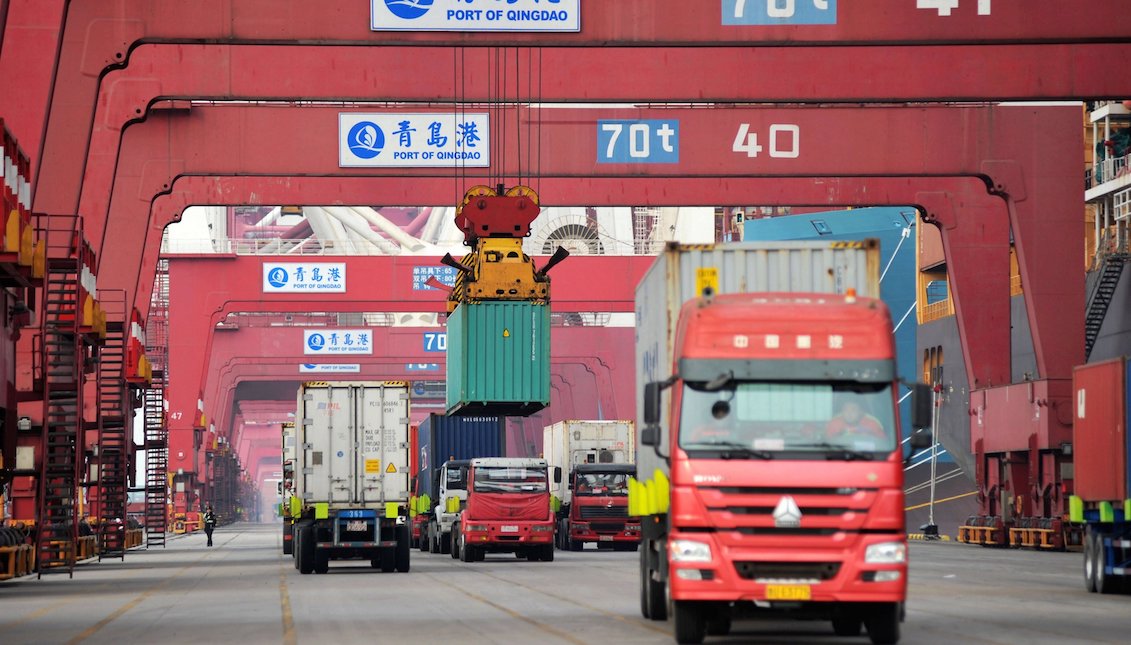
5 things you should know about the alleged trade war with China
After President Trump announced new tariffs on imports of aluminum and steel, the global market has emerged with concerns about an alleged trade war. What is…
"Trade wars are good and easy to win," the US president wrote on Twitter in early March, after impulsively announcing an increase in steel and aluminum import tariffs.
As explained by the Washington Post, Trump's unilateral strategies try to pass over organizations like the World Trade Organization (WTO), arguing that it is "a matter of national security."
"Trump has defended the measures, arguing that his national security reasoning is justified because the United States needs to produce more steel and aluminum for its defense sector," the Post continues.
But his administration went on to announce a list of Chinese goods that were targeted for "punitive" tariffs in response to Beijing's supposed stance that "pressures foreign companies to hand over technology," the Economic Times explains.
In retaliation, Beijing has announced a list of US assets of up to 50 billion dollars that are susceptible to rate increases, triggering what many anticipate as the prelude to a trade war.
On Monday alone, China raised tariffs on pork, apples and other US products to balance steel and aluminum tariffs.
This type of disagreements is described by economics specialists as "the conflict between two or more nations with respect to tariffs imposed on each other", and is usually triggered by the interest of each country to "improve imports or exports" for its own nation, leading to the potential increase in costs on some goods.
According to the BBC, the most important risk is that tariffs and impositions escalate to the point of unleashing “political tensions between both countries."
For President Trump, "Beijing is violating free trade agreements" by pressuring foreign companies on the technology issue, trying to get rid of their competition in exchange for market access.
This is also called "intellectual property theft" by the Trump Administration and is part of their anticipated criticism of China for "unfair trade practices" that was part of his presidential campaign.
Similarly, the president has argued that the trade deficit with China is unsustainable (last year it closed at around 375bn), which means that many more products are being bought from China than the United States is exporting.
RELATED CONTENT
As the BBC continues, that economic system tries to "boost the country's industry and shield it from foreign competition," something that Trump would have tried with aluminum and steel because "it could mean that US companies will now buy local steel instead of foreign", thus improving national production.
The Economic Times explains that the commercial relationship between both countries "is the largest in the world", which presses them to reach an agreement to avoid harming the businesses that depend on both.
"Exports to China directly or indirectly supported 1.8 million new US jobs in 2015," explains the media. "Economists and investors worry that other governments might respond by raising their own import barriers. That might chill commerce and set back a global economic recovery."
According to most specialists, nobody wins in a commercial war.
"What’s next is we’re going to see a tit-for-tat retaliation," Joseph Brusuelas, chief economist at the consulting firm RSM, told CNN. "This is a classic lose-lose proposition, no one wins.”
While the “tariff talk” is a negotiation tactic, the risk of it becoming politically aggressive is very high.
According to CNN, "at this moment, China appears to be attacking states - and workers - that voted for Trump in the 2016 election", especially when announcing their tariffs on soybeans.
However, "still, experts worry that the United States hasn’t been clear with China about what exactly it wants. They say the Trump's strategy could falter in the face of a stoic China."











LEAVE A COMMENT:
Join the discussion! Leave a comment.